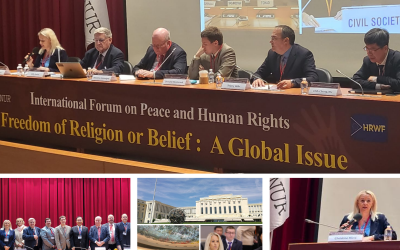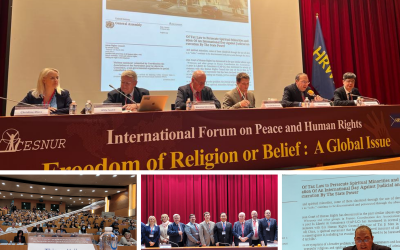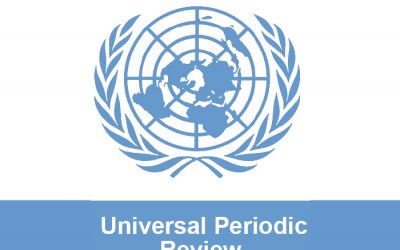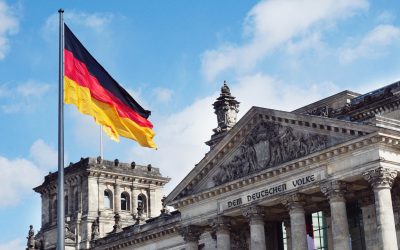Coordination des Associations et des Particuliers
pour la Liberté de Conscience
(CAP Freedom of Conscience)
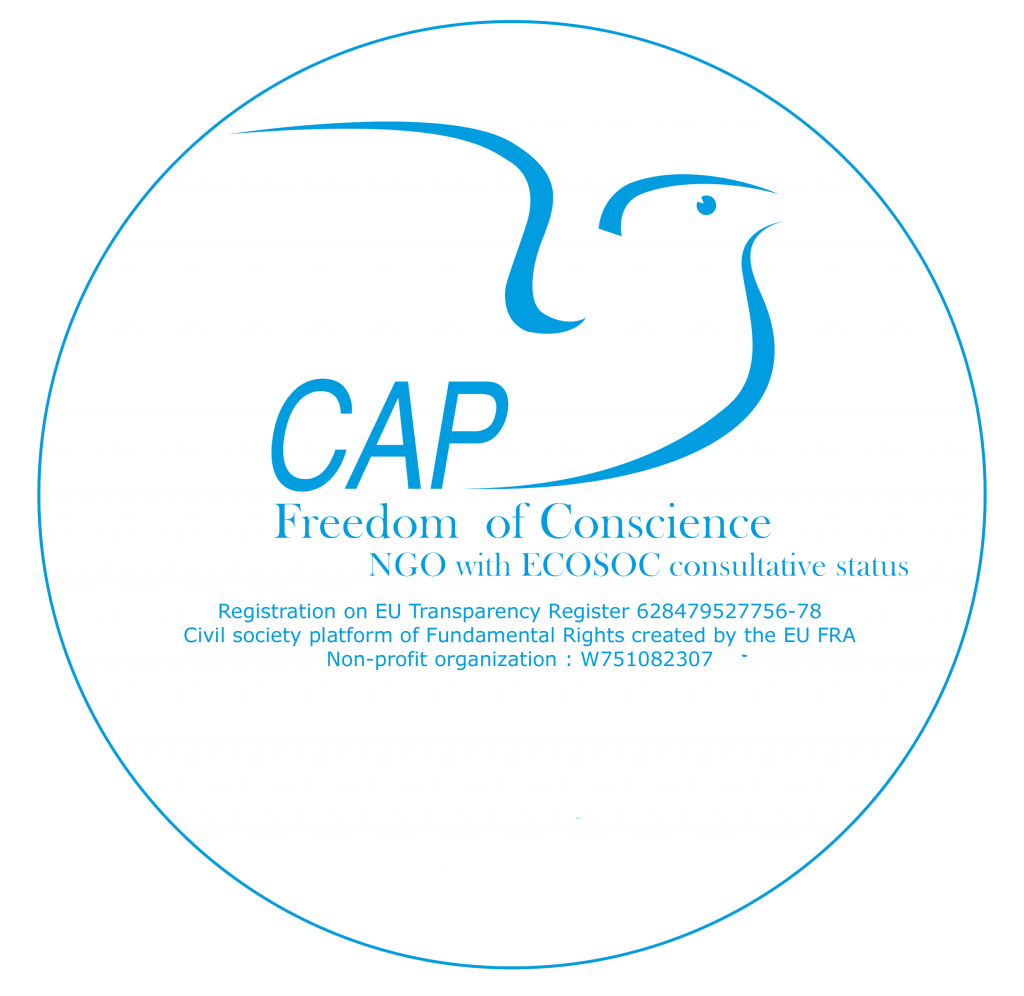 NGO with ECOSOC consultative status at the United Nations
NGO with ECOSOC consultative status at the United Nations
Registration on EU Transparency Register 628479527756-78
Civil society platform of Fundamental Rights created by the EU FRA
French non-benefit association register : W751082307
Member : European Federation for Freedom Of Belief – FOB
Member : Conference of Non-Governmental Organizations in Consultative Relationship with the United Nations – ConGo
Advisory Board : International Council for Diplomacy and Dialogue
Advisory committee : New Generation Uniting Nations
2024 Friends of Falun Gong Human Rights Award
DAFOH Partners in Combating and Preventing Forced Organ Harvesting
Contact : contact@coordiap.com
phone : +336 70 66 04 42
CAP Liberté de Conscience – 117, rue de Charenton – 75012 – France
What is “Coordination des Associations et des Particuliers pour la Liberté de Conscience” (CAP Freedom of Conscience)?
CAP Freedom of Conscience is a secular European NGO with United Nations Consultative Status, created in 1995 and dedicated to protect the Right of Freedom of Religion and Belief.
CAP Freedom of Conscience combats all forms of discrimination based on religion or belief by alerting European and International bodies.
CAP Freedom of Conscience collects testimonies of discrimination and human rights violations affecting religious or belief communities in order to disseminate them to international bodies, and in order to raise awareness and inform them as well as to generate debate on the protection of Freedom of Religion and Belief.
CAP Freedom of Conscience also advocates for any religious or spiritual group facing discrimination to have their right to Freedom of Religion and Belief recognized.
CAP Freedom of Conscience is a member of the European Federation for Freedom of Belief (FOB), European Network Of Religion and Belief (ENORB) and participate to the Civil Society Platform of Fundamental Rights created by the EU Fundamental Rights Agency.
CAP LC General Assembly report 2021
CAP FREEDOM OF CONSCIENCE SUPPORT :
FoRB Roundtable Brussels-EU
https://www.forbroundtable.org/
The FoRB Roundtable Brussels-EU is an informal group of individuals from civil society who gather regularly to discuss FoRB issues on a non-attribution basis. It is simply a safe space where participants gather, speak freely in sharing ideas and information, and propose joint advocacy actions to address specific FoRB issues and problems globally.
Taiwan : International Forum on Peace and Human Rights Freedom of Religion or Belief : History of the Civil Society Power at the United Nations
The prejudice suffered by the Tai Ji Men for more than twenty years must be denounced to the international community and to international institutions such as the United Nations, so that the international community may urge Taiwan to cease its persecution and comply with international human rights standards.
Taiwan : International Forum on Peace and Human Rights Freedom of Religion or Belief : The Case of Tai Ji Men at the United Nations
“religion and spirituality live in the hearts of the believers, but they create communities, and communities cannot exist without places where they can gather. For many religious and spiritual groups, these gathering places do not serve a functional purpose only. Land where devotees gather becomes sacred land. Religion and spirituality live in time and space. They separate portions of time and space from the daily temporal and spatial flow, appropriate them for themselves, and invest them with spiritual meanings. Taking their spaces away from spiritual movements means cutting their deepest roots.”
44th UPR Session Germany 06th – 17thNovember 2023 Religious asylum seekers in Germany
he traffic light coalition in Germany has taken many measures and passed laws to better manage migration. However, the number of deportations has also increased. Even to those countries where blasphemy laws are practiced in the strongest terms. Deportations of Ahmadi Muslims to Pakistan have increased sharply in the past.
44th WG UPR Session BANGLADESH – 2023 Persecution of Ahmadis in Bangladesh
The Ahmadiyya Muslim Community has suffered long-standing persecution in Pakistan, where the very identity of an Ahmadi Muslim, existential by definition, has been denied. The community is persecuted and discriminated by law and by religious ideology. The fundamental right to freedom of thought, conscience and religion or belief as well as other human rights of the Ahmadiyya Muslim community have been seriously violated.
Ahmadi Muslim father faces deportation from Germany after escaping state persecution in Pakistan
We are gravely concerned to hear that an Ahmadi asylum seeker SIKANDER ZULQARNEIN BHATI who arrived in Germany in 2001 to seek asylum has now been captured by the German authorities with the intent to deport him back to Pakistan. During the past 22 years he has been desperately trying to get asylum, but his case has been repeatedly rejected and at one point when his deportation seemed imminent, he escaped to Holland but had come back to Germany to pursue his asylum case.
Ahmadi muslims in Germany who’ve fled state persecution are being deported back to Pakistan and it’s putting their lives at risk
Ahmadi muslims in Germany who’ve fled state persecution are being deported back to Pakistan and it’s putting their lives at risk

